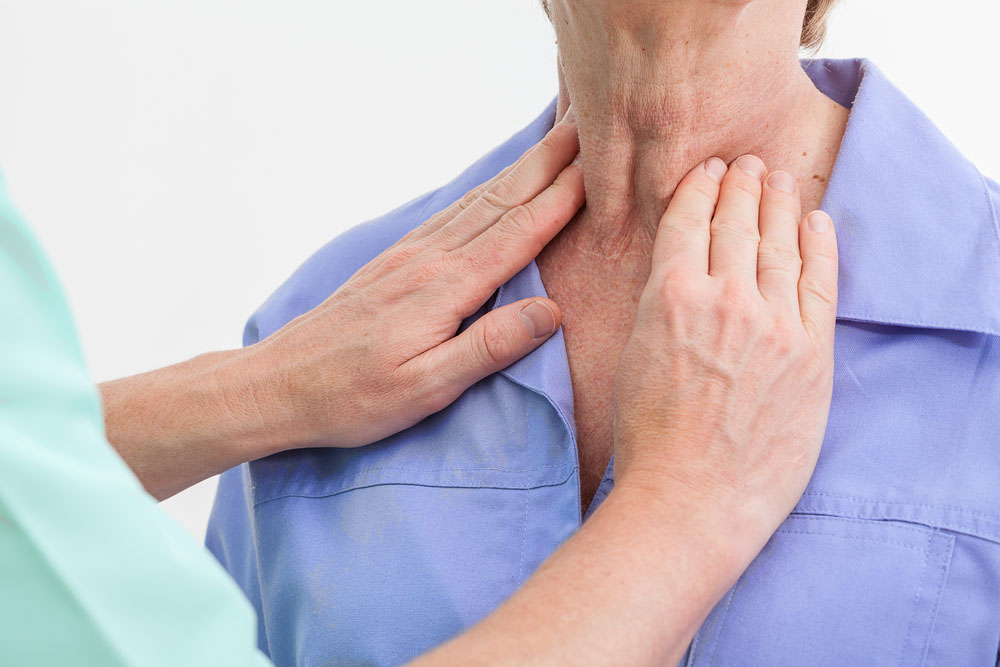Thyroid Disease
Thyroid disease is one of the most commonly diagnosed medical conditions in the US. It affects women more than men. Despite how common it is, the majority of us are unaware how important the thyroid is and how necessary it is to our wellbeing.
The thyroid produces thyroid hormones. Digestion, organ function, hair and nail growth, and even your sex drive are all reliant on these hormones. Your heart, brain, and metabolism all depend on the thyroid to produce the right hormone levels in order to work correctly.
When there is a problem with the thyroid, it affects all our bodily functions. If diagnosed and treated early, the thyroid can be restored to its full functionality. It’s therefore important to understand what thyroid disease is and to seek medical advice as soon as possible.
What is thyroid disease?
The thyroid gland is located at the base of the throat, below the Adam’s apple. By absorbing iodine from your diet, it produces the all-important thyroid hormones. Key among these are T3 and T4. When the gland becomes overactive (hyperthyroidism) or underactive (hypothyroidism), problems arise. In these cases, thyroid disease is usually caused by autoimmune conditions.
Hypothyroidism is most commonly caused by Hashimoto’s thyroiditis. Antibodies destroy parts of the thyroid, thereby reducing the amount of hormone produced. A deficiency of iodine can also cause the thyroid to become underactive. This is rare in the US yet it affects nearly two billion people globally.
Graves’ disease is the biggest cause of hyperthyroidism. The immune system produces an antibody, stimulating the thyroid. This leads to an increase in the levels of thyroid hormone being produced.
The thyroid gland is also susceptible to cancer. It’s quite rare but can occur in people who have had radiation treatment on the neck or head in the past.
The signs and symptoms of thyroid disease
There are a number of indications that you may be suffering from thyroid disease. These include a visible lump in the throat, difficulty when swallowing, hoarseness, or a sore throat.

Hypothyroidism
Weight gain and being unable to lose weight even with regular exercise and dieting may be a sign of an underactive thyroid. Others signs include:
- Hair loss
- Fatigue
- Feeling cold all the time
- Constipation
- Aches in the muscles and joints
Depression, irritability, confusion, and forgetfulness are some of the personality changes to look out for.
Hyperthyroidism
Symptoms of an overactive thyroid can include:
- An increased heart rate, body temperature, and blood pressure.
- Hand tremors,
- Insomnia
- Diarrhea
An increase in appetite is generally accompanied by weight loss. Patients may also have feelings of anxiety, restlessness, agitation, or nervousness.
Thyroid disease management and treatment
Once you receive a diagnosis of thyroid disease, treatment can begin. This may include hormone replacement therapy, iodine doses, or anti-thyroid medications. Doctors may prescribe additional medicines to help ease symptoms.
Fairview’s highly professional team has experience in treating thyroid diseases. They will ensure that you are taking the correct medications for your condition. Diet is important and making sure you are getting the right nutrients will help manage the problem. Our dieticians are available to provide advice on dietary changes you can make.
Stress can aggravate thyroid disease, which is why Fairview ADC provides activities for members to take part in. Keep your body and mind active by joining one of our exercise or dance classes. Chair yoga is a great stress reliever.
If you or a loved one is experiencing symptoms of thyroid disease and requires experienced care, contact us at Fairview Adult Day Care Center in Brooklyn.

